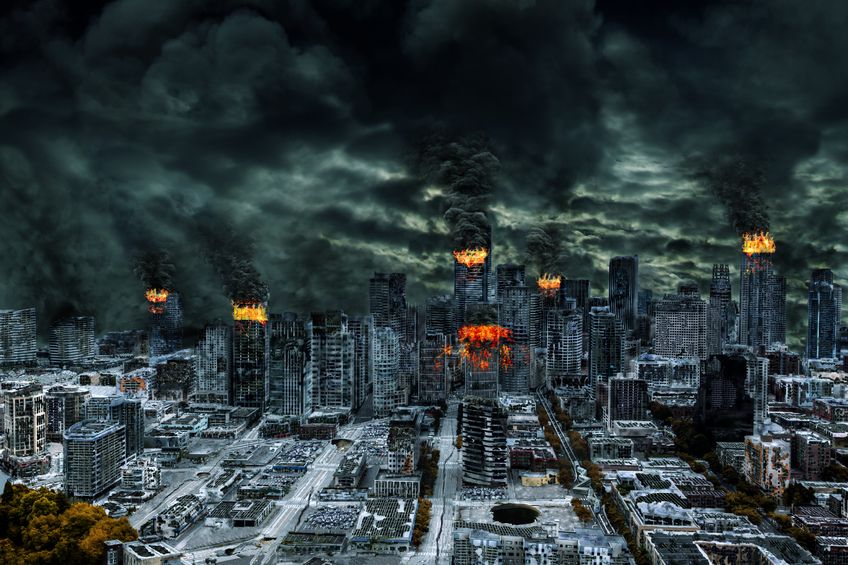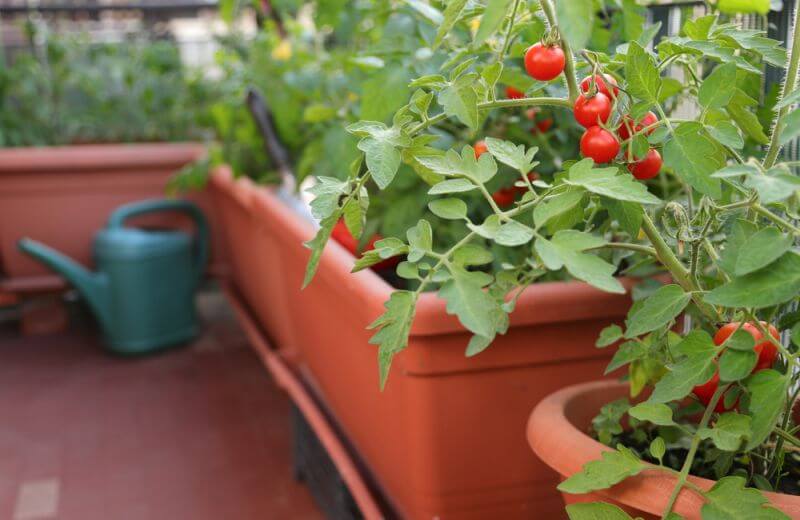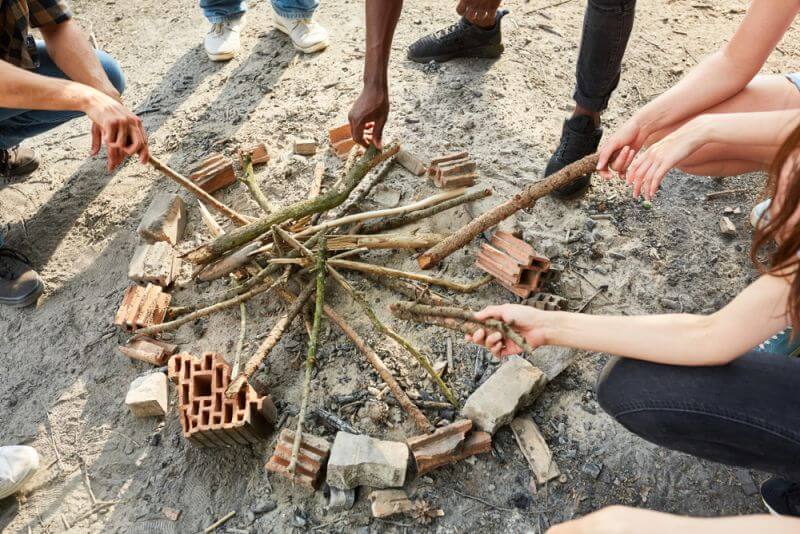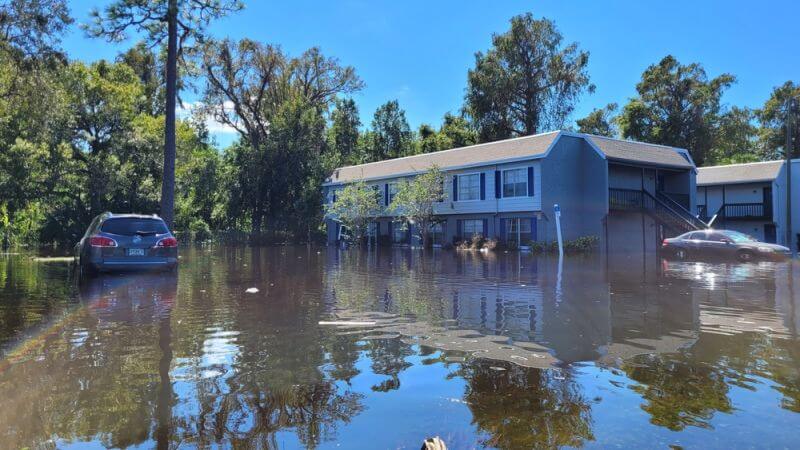There’s a lot of good information floating around to help people get a start in prepping, but there’s also some that’s not so good.
The hard part for a new prepper is telling the difference between the hype and the good, solid information. What makes it worse is that some things which sound crazy are great and some things that sound logical will get you killed.
But if you’re going to survive, you’ve got to sort through all that information and find the truth. Otherwise, you might find that you’re following a chimera, which will disappear just when you’re ready to grab it. That will probably be right at the moment you have to use it to survive.
Fortunately, while there is always new information coming out, the basic concepts of survival have existed for a long time.
So, when all else fails, you can always go back to the way people did things before all the new-fangled gizmos and gimmicks came along. If people survived without them before, there’s a good chance that you can survive without them too.
Let’s take a moment to look at some of the more common myths that I see cropping up on the internet. I’m going to show you what is wrong with them, so that hopefully you can avoid them in the future.
You Need a Bunker
There are a lot of people building underground bunkers these days. You can either build one yourself or hire a number of different companies that specialize in making them. Some of them are actually quite nice. But, do you really need a bunker? To understand that, we have to go back in history.
The history of bunker building in the United States goes back to World War II. While there may have been a few in existence before then, that’s when they really took off. People living in the northeast built them under their homes or in their backyards as a way of protecting their families from NAZI bombers. While the bombers never came, the bunkers remained.
In the Cold War, those bunkers and others were used as fallout shelters in case of a nuclear holocaust. People would stock them with supplies, so that they could run and hide in them in the case of nuclear war. What they would do when they had to come out, I don’t know; but they’d be protected while they were in there.
Today, the risk of nuclear war or any other bombing by overseas enemies is quite different, and building a bunker to protect from them would be an unaffordable effort. Nor does it make sense to build one to protect from local marauders, as you are totally unprotected in that bunker. Better to have an above-ground shelter that you can fight from.
You Can Make a Bunker Out of a Shipping Container
There are lots of people buying shipping containers with the idea of making an underground bunker out of them.
While I think that shipping containers are great for storing things in, I would never bury one underground. All of the strength in a shipping container is in the corners. The roof and walls are actually rather weak. So, if you bury one, there’s a very good chance that the walls and roof will collapse under the weight of the dirt.
The only way you can use a shipping container as an underground bunker is to strengthen the walls and roof. This can be done by building cement block walls and pouring a cement roof. It can also be done out of pressure-treated wood.
In either case, if you’re going to all that trouble, why use a shipping container? Just build it out of the other materials.
You Can Live off the Land
Living off the land has a lot of appeal to it. We identify with our pioneering ancestors, and how they settled America. The only thing is, that’s a hard way to live. Those ancestors had to spend most of their time just finding food.
That’s why cultivating farms and domesticating animals took over from living off the land. It’s much more efficient, provides larger yields and allows time for other pursuits.
The other problem with living off the land is that there is much less game available today, than what was available during those pioneering days. At the same time, we have a much larger population.
So, while there’s plenty of game to satisfy the hunters every fall, there really isn’t enough to support the majority of the population living off the land.
The Expiration Date on All Canned Goods Is False
This is one of those things that’s partly true. It all depends upon the type of container that is used for canning.
Today, commercially canned foods come in glass, metal and plastic containers. While foods canned in glass and metal containers will keep for years, those canned in plastic containers won’t do as good.
Most plastics are at least partially permeable to air. So, a small amount of oxygen is going to get through the plastic, attacking the food and oxidizing it. While this process is slow and it will take a couple of years for it to happen, it does in fact happen.
So, while you can keep those canned peas for 20 years, that jar of applesauce that’s in a plastic jar won’t keep as long.
A Financial Collapse Will Cause Society to Break Down
There’s a lot of talk about a pending financial collapse, and with good reason. It is widely accepted by a lot of people that our country is on the way to a financial collapse and nothing we can do will stop it.
For this reason, there are lots of preppers who use this as one of their scenarios that they are prepping for.
While the collapse may be inevitable, societal breakdown isn’t. In fact, there is little to show that there would be any sort of breakdown of society. Historically, it has never happened in any other financial crash. There will be hardship and the middle class will disappear, but society as we know it will still exist.
A breakdown in society means a breakdown in the government and the rule of law and order. But governments are too greedy to allow that to happen.
Regardless of how much the population is suffering, the government will make sure that they get their cut first, so that they can continue on. They are more likely to increase taxes, just so that they can continue offering their “vital” functions, even if it kills us.
You’re Better off Bugging Out
A lot of people act like bugging out is the way to go. Their reasoning is that the most dangerous predator we face is home sapiens.
Anywhere there is a large population of these predators congregating will become a dangerous place to be. So, it’s best to get out of cities and other large population areas, just to get away from our fellow humans.
The problem with their thinking is that if you don’t have a prepared, stocked survival retreat to go to, you’re going to have to live off the land. As I’ve already said, that’s not only difficult, but almost impossible.
You Need a Gallon of Water per Day
I’ve heard this one over and over again, written in countless articles and countless books. It’s actually stated a bit differently, saying, “You need a gallon of water per person per day for drinking and cooking.”
Unfortunately, they never go on to talk about the other uses of water.
If you live in a hot climate, such as the southwest, you need to drink more than that, as you can actually sweat out a gallon of water per day. So, the amount of drinking water you need depends on climate; it’s not just a standard. In a cool or temperate climate, a half-gallon of drinking water is sufficient.
But we also need water for cleaning and growing our vegetable gardens. Personal hygiene is an important part of survival too. It won’t do you a bit of good to be well fed, if you’re sick all the time. Better to keep yourself, your clothes, your dishes and your home clean, so that you can stay healthy. Granted, you should conserve water to the extreme in a survival situation, but you will still need it for these activities.
A more accurate figure would be about five gallons per person per day. Of that, only one gallon per person has to be purified so that you can drink it. Water used for washing clothes, bathing and watering the garden doesn’t have to be purified.
An EMP Will Destroy Everything
One of the scariest potential disaster situations we face today is that of an EMP. An EMP exploded high enough over the central part of the country would take out the power grid nationwide, as well as destroying the majority of our electronics, but there would be some things that would survive.
EMPs destroy solid-state electronics, which means they would destroy computers, radios, calculators, television sets and a lot of industrial equipment. But they do not destroy simple electronics, such as switches and motors. So, some things, like appliances, would probably still work, if you could get electricity to them.
With the grid down, that may be difficult, but not impossible. Solar panels are all but untouched by an EMP. While there will be a slight reduction in output, it’s not enough to stop them from functioning.
So, if you have a solar system, with a battery backup and proper protection, you’ll still have power. If you have spares for them in a Faraday cage, you’ll be able to continue producing your own power. Most old cars will probably survive EMP as well.
Of course, the cure for any damaged electronics, whether it is a damaged brain for a car or a damaged DVD player, is to have another one hidden away in a Faraday cage. Then all you have to do is take it out and plug it in.
And, above all, be realistic in your prepping plans, and also when evaluating your skills. Keep in mind that you have weaknesses to suppress, not only strengths to rely on.
This article has been written by Bill White for Survivopedia.










Paul Mason | April 16, 2015
|
My brother did high-intensity EMP experiments in the Defense Industry, and told me Faraday cages weren’t too good, as the slightest crack or hole would ruin it, and there’s really no way to fully seal a Farraday cage.
So…. how far underground must something be, to be safe from EMP?
Mitch Wheeler | April 16, 2015
|
Use Alum. ie metal tape on the seals and any lined metal box is good enough.
Pre 1979 vehichles are best,
No one | March 29, 2016
|
You should read http://empcommission.org/ “Commission to Assess the Threat to the United States from Electromagnetic Pulse (EMP) Attack”
I think you will find that much of what is purported to be fact about EMPs is mostly hollywood magic. No doubt some things will break, and break badly. But not all solid state devices will be taken out, nor will many newer vehicles (although they do go through some scenarios why they would such as parking next to a metal light pole).
They also tie in damage to different sectors such as traffic lights going out causing grid-lock, the power grid and telecommunications being down causing problems with banking, etc.
MMcClure | April 16, 2015
|
A comment about financial collapse: All of our past “collapses” have really been economic recessions or stock market events. The underlying currency did not implode because it was ultimately backed by tangible assets. If you had a dollar during the Depression, you could still spend it. Today, the situation is much different. There is nothing backing the dollar except $17 trillion in IOUs. In a modern collapse, the currency itself will likely become useless. No one will want your dollars.
Ray | April 16, 2015
|
Good article, I especially like the reference to water consumption. Actually medical journals say that a person only needs 1/2 oz of water per pound of body weight to maintain hydration levels under non exerting circumstances. Drinking too much water is just as bad for you as not having enough.
Thanks
wayne | April 18, 2015
|
What do you mean? To much water? You can drink pretty much all the water you want as long as you are not an idiot.
Glen Wilcoxson | April 18, 2015
|
40 inches “they” say
Big D | April 16, 2015
|
Great article, I have been doing and thinking this way forever. Think about how many pioneers perished because they weren’t prepared. When all of your food and supplies are where you live, don’t leave, bug in and make your abode secure. Weaponize yourself! You don’t need tons of guns, but become capable with what you have. If you feel you have to bug out, prepare for that. Purchase a small plot of land, whatever you can afford, you can bury supplies and you can start to prepare your shelter.(go online to small cabin plans) You can plant fruit trees, prepare garden areas and you just might find out you want to live that lifestyle after all! Whatever you do, prepare. Stay prepared my friends!
Russell Johnson | June 16, 2015
|
Great comments, BIG D. My wife and I are seniors, living in a very nice 55+ mobile home park in Southern California. On the 980 square feet of garden space we have, we grow most of what we eat. The secret is growing vertically – most of our crops are climbers that are supported by simple and inexpensive trellises constructed by my son and me. We also have 9 dwarf fruit trees. Fruits are a great source of daily water as well as nutrients. We have a very sharp machete and a 12-guage shotgun (with lots of ammo) that we both know how to use. Also, we have a number of edible plants in front of our home and around the property that the thugs would not recognize as edible (moringa, katuk, chia, purslane, mallow, etc.) Even if someone steals my Korean melons, my oranges, mangos, lemons, pomegranate, guava, papaya, my carrots, squash, peas, beans, eggplant, spinach, onions and so forth, they would probably ignore the others.
By the way, I would warn young people not to assume that seniors are easy targets. Many of the residents here are retired military or retired law enforcement. Most of us are armed and not squeamish about killing if necessary. They mess with my neighbors, they mess with me.
Jim | April 16, 2015
|
These are all great points. I fully believe that performing actual drills with your family is the way to go. A week of bugging in at your own home and actually cooking with your stored food is wildly enlightening.
wayne | April 18, 2015
|
Ya make sure that your food is
something you like and will eat.
Russell Johnson | June 16, 2015
|
True. After several years of eating mostly from our gardens, we have discovered what we really eat and what we only thought we would eat. Ease of cooking and the ability to eat a food raw is important as well. Also, when I prune the fruit trees, I lay the wood aside to dry for fuel in case we need it for cooking. Fortunately here in SoCal staying warm is not a problem. Here, the problem is water, so we store plenty. We catch the occasional rain in a rain barrel for non-drinking use. I just hope it is enough. Water is what really concerns me.
Rambuff | April 16, 2015
|
Many good points – several I don’t agree with, but there is one that is absolutely WRONG!! Solar panels are, by definition (and operation) “solid state” devices….they are essentially PN junctions triggered into conduction by sunlight. They WILL be totally zorched by an EMP or CME, make no mistake.
Oh, and we need to tell Zippy up above that his brother’s comments “in the military” was full of it, claiming that Faraday Cages were “not too good”. That’s TOTAL crap; any decent engineer knows that a Faraday cage is the ONLY protection against EMP….or at least the functionality of a Faraday cage by any other device, situation, etc. that shields by deflection.
I also disagree that bugging out is a bad idea….provided that it is done with foresight and planning…..it’s easier NOT to have to face mobs than it is to face off coyotes or marauding plant predators. Just ask the residents of Furgeson what they thought of staying put….or those who stayed behind in New Orleans during Hurricane Katrina. ‘Nuff said.
wayne | April 18, 2015
|
Well,just store solar panels in your Faraday cage.
Pingback:False Myths That Could Ruin Your Prepping Plans | TheSurvivalPlaceBlog | April 17, 2015
|
Robert | April 18, 2015
|
While I agree with 90% of what you have said, I find the reasoning about the economic breakdown to be wrong. I believe that most people will have very little faith left in the Gov’t hen this happens. I believe that major chaos and panic will set in and to the extent that law & military will be unable to handle the fallout from a total conomic collapse. This has been proven time and time again by other nations in their “little” economic problems. A total collapse in America would be of significant disaster and last possibly decades. In that time, it could very well be a “every man for himself” situaton especially if the monetary system is devalued so much that currency is for the most part “toilet paper”.
Russell Johnson | June 16, 2015
|
I agree, Robert. These days it is not like during the great depression of the 1930s. Back then people had pride and morals. They sought work – any kind of work – to earn a meal. These days I think it would take about a week until all the stores are completely looted and there is no more food. After that it would be a just a few days until people are willing to kill you for your food and water, or maybe for the meat on your bones. History tells us that hunger can drive people to do unimaginable things.
MM | April 26, 2015
|
You can repurpose an old microwave oven as faraday cage…
you can stack them for ample storage. No modifications are needed.
Michael | April 28, 2015
|
The fact is while we have a hell of a lot more people here than we did at the turn of the last century, Most of them don’t hunt, have no clue how to trap nor do they know how to rend an animal into meat. They don’t know how to prep it for long term storage without refrigeration. So for people like myself hunting is an option. Not the only option mind you. Raising/farming as much of my own food as possible is always number 1. Also knowing what wild edibles that are available is important.
Russell Johnson | June 16, 2015
|
You are right, Michael. Most people will die if society collapses. They have no idea where food comes from or how to produce it. Besides learning to garden, it is a good idea to observe and catalog all of the plants in your neighborhood that are edible. So if someone steals all of your food (and you survive it), you can maybe still gather enough to survive. Surprisingly, many of the plants growing around us are edible, if only we know how to recognize them. I recently found a sizable patch of wood sorrel growing wild at the edge of the public park nearby. Wood sorrel can be used to make “poor man’s lemonade”, rich in vitamin C and potassium. Mallow also grows everywhere around here. While wild mallow is not something I would want to eat every night, it is nutritious and can help me stay alive in a crisis until I could get a crop in from my seed bank. Same with purslane and wild mustard. While I am on the subject, I cannot stress strongly enough the need to store seeds and learn how to sprout them and grow them. It took me 4 seasons of growing food in my gardens before I learned to do it right. I am still learning much every season. Reading books and internet articles cannot replace actual practice in raising food. Those who don’t start until after the crisis hits will be casualties not survivors.
Ian | February 7, 2016
|
In reference to EMP that’s one of the (extra/minor) reasons why I went the wind turbine route.
But rightly or wrongly I do take the view that both the charge controller and the inverter will be taken out